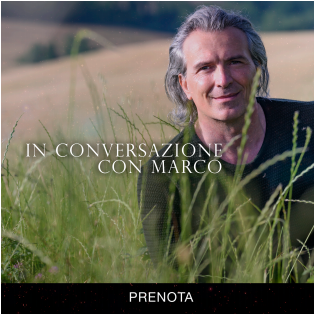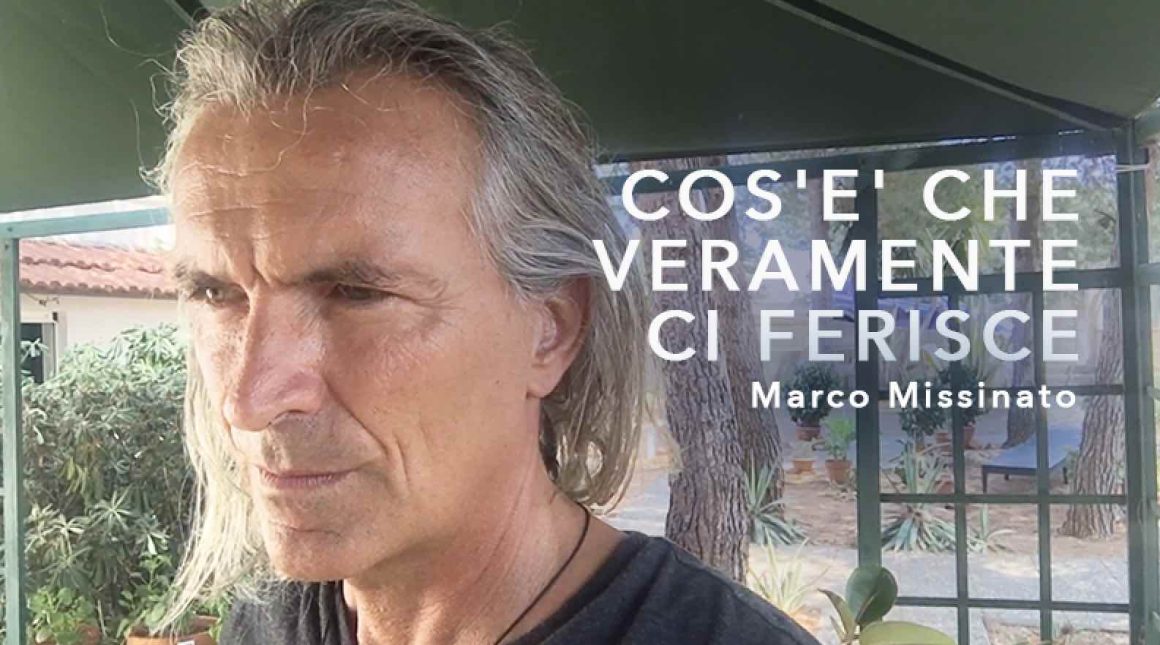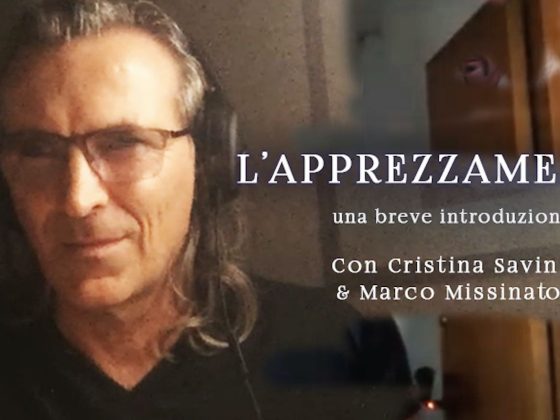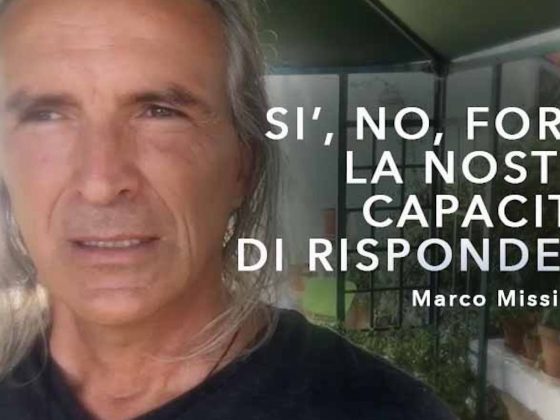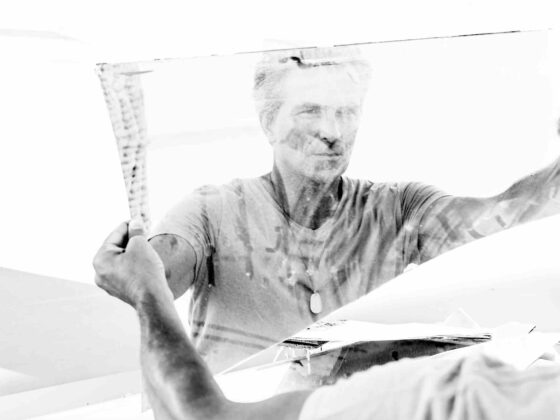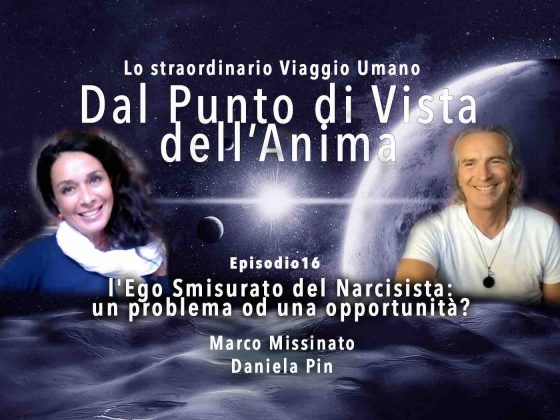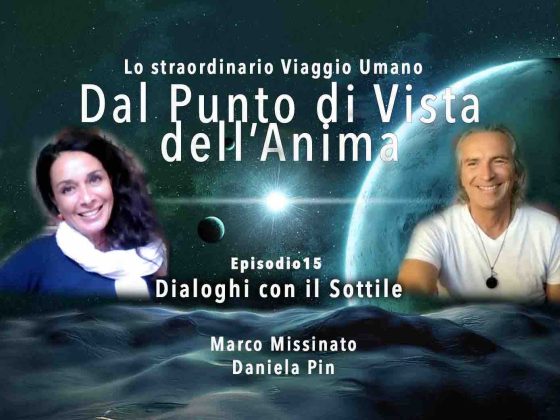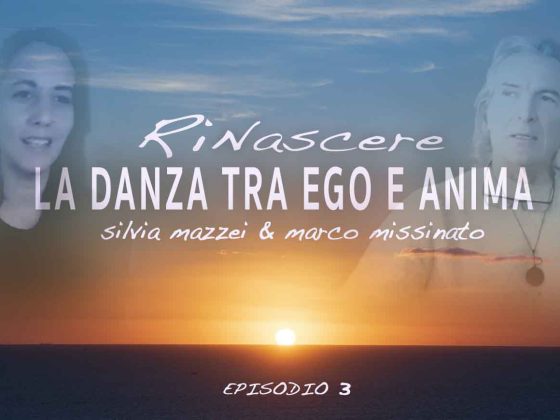scroll down for english text
Quando qualcosa, un individuo, una situazione, un’esperienza, ci feriscono, o ci fanno stare male, o ci fanno arrabbiare, o comunque creano dentro di noi una reazione contratta, distogliamo la nostra attenzione dal programma vittima/ vittimizzatore, che vuole che noi ci focalizziamo su quello che ci è stato fatto e su colui che ci ha fatto qualcosa, che ci ha ferito. ditogliamoci da quest’aspetto dell’esperienza che è, diciamo, il programma vittima vittimizzazione che viene immediatamente innescato, attivato, e che corrisponde ad un credo del collettivo che nel programma vittime vittimizzatore ha già deciso cosa è giusto e cosa è sbagliato. Allontaniamoci, allontaniamo la nostra attenzione da questa situazione che, come ripeto, è una distrazione, e facciamoci la domanda: “perché questo individuo mi ha fatto arrabbiare o mi ha ferito?” “Perché questa situazione mi ha fatto stare male?” CI colleghiamo con la nostra anima e facciamo questa domanda e immediatamente la mente dirà: “Sì! Ci è stato fatto male perché questo ti ha fatto questo e questo e questo… Non è giusto e lui è uno stronzo!” E tu dici: “Certo, è vero. Lui o lei mi hanno fatto questo e questo e questo. Ma perché mi sono arrabbiato? Perché mi sono ferito?” quindi rimuoviamo l’attenzione dal vittimizzatore, dal nostro senso di vittima, e andiamo al nocciolo della situazione. continuiamo a chiedere questa domanda: Perché questa cosa mi ferisce, questa situazione mi ferisce, questo individuo mi ferisce? Finché non arriviamo alla risposta che è alla base del problema e non è un sintomo, è la vera causa. Questo è il lavoro che tutti dobbiamo fare per portare in superficie tutto ciò che non è integrità con la nostra essenza, così che possiamo rimuoverlo e strecciare, allargare il nostro potenziale creativo e la nostra, diciamo, capacità di navigare questo cammino umano. In questa situazione, poi molti si rifugiano nel perdono. “Ok, mi hai fatto del male. Ti perdono” E’ un, diciamo un fenomeno interessante perché in realtà quando arriviamo a un livello di maturità, coscienziale più alto, ci accorgiamo che non c’è mai niente da perdonare, perché tutto è un’esperienza e tutto è un’opportunità. Quindi niente è successo per caso. Tutto è stato perfettamente orchestrato dalla nostra parte divina, la nostra parte animica per avere un’esperienza. Vittima e vittimizzatore danzano insieme per avere un’esperienza e spesso queste esperienze sono state decise e programmate anche prima della nostra incarnazione. Prima di entrare nel gioco spesso decidiamo che ruoli possiamo interpretare l’uno con l’altro per avere specifiche esperienze. Quindi il gioco del perdono può essere anche quelle un’esperienza. Possiamo perdonare “chi ci ha fatto del male” e questo, diciamo è il primo stadio, ed è uno stadio ancora di semi coscienza. Poi man mano che alziamo le nostre frequenze, capiamo che non c’è niente da perdonare e capiamo che colui che tra virgolette ci ha fatto del male è un dono e un’opportunità, è un’esperienza. E poi, alzando ancora più le frequenze, capiamo che nessuno ci può far del male senza il nostro consenso. Quindi siamo noi che abbiamo acconsentito alla danza vittima di vittimizzatore per avere un’esperienza. E quindi andiamo dal “Ti perdono” ad un senso di ringraziamento per l’esperienza ricevuta e poi ancora più ha un senso di apprezzamento per tutto ciò che è successo. E poi finalmente al succo del motivo per cui abbiamo fatto questa esperienza che culmina con la domanda: Cos’è che mi ha fatto arrabbiare? Cos’è che mi ha fatto reagire in questa maniera? Cos’è che mi ha ferito? Cos’è che mi ha fatto sentire non capito, umiliato, usato… Quello che è, qualunque sia la narrativa della situazione e ascoltiamo chiaramente l’ego che ci dà 1000 ragioni per cui è lui o è fuori. Tu non c’entri, tu sei vittima, è lui che ti ha fatto questo e questo… ti ha abusato, ti ha lasciato, ti ha ferito, ti ha fatto del male, ti ha imbrogliato, ti ha rubato, ti ha fregato. L’ego Continuerà in maniera sempre molto più astuta e più sottile a cercare di distrarti dal vero lavoro che dobbiamo fare e a farti cadere nel programma vittima e vittimizzatore così che tu continui a sentirti inpotente, nel senso che ti senti, che sei vittima delle circostanze. Quindi le circostanze esteriori hanno un potere su di te. Le circostanze esteriori hanno un potere su come ti senti, su quello che fai, quello che non fai, su come sei, quello che sei. Rimuoviamo l’attenzione da questo aspetto della narrativa, che è l’aspetto ego/mente e rivolgiamoci alla nostra anima e chiediamo “cos’è che ci ha ferito?” e continuiamo a chiederci questa domanda finché non arriviamo alla vera causa, che non ha niente a che fare con il vittimizzatore, con colui che ci ha fatto male. Lui o lei stanno semplicemente interpretando un ruolo. Sono semplicemente uno specchio. E se tu vuoi che lo specchio sorrida, devi sorridere te. Non puoi sentirti vittima e continuare a sentirti vittima con l’idea che ti sentirai meglio quando finalmente lo specchio ti sorride. Dobbiamo raggiungere il sorriso che è dentro di noi, rimuovendo tutte queste storie e rimuovendo tutte quelle narrative e quelle idee che ci impediscono di sorridere, così che possiamo rimuoverle dal nostro sistema. Sorridere. E solo allora il vittimizzatore scompare dalla nostra realtà e lo specchio della vita riflette il nostro sorriso con un altro sorriso.
WHAT IT REALLY HURTS US
When something, an individual, a situation, an experience, hurts us, makes us feel bad, or makes us angry, or otherwise creates a contracted reaction within us, we divert our attention from the victim / victimizer program, which wants us to we focus on what has been done to us and on the one who has done something to us, who has hurt us. Let’s get away from this aspect of the experience which is, let’s say, the victimization victim program that is immediately triggered, activated, and which corresponds to a collective belief that in the victimizer victim program has already decided what is right and what is wrong. Let’s move away, let’s take our attention away from this situation which, as I repeat, is a distraction, and let’s ask ourselves the question: “why did this individual make me angry or hurt me?” “Why did this situation make me feel bad?” We connect with our soul and ask this question and immediately the mind will say, “Yes! We were hurt because this did this to you and this and this … It’s not fair and he’s an asshole! ” And you say, “Sure, that’s true. He or she did this and this and this to me. But why am I angry? Why did I get hurt? ” then we remove the attention from the victimizer, from our sense of victim, and get to the heart of the situation. we keep asking this question: Why does this thing hurt me, this situation hurt me, this individual hurt me? Until we get to the answer that is at the root of the problem and is not a symptom, it is the real cause. This is the work we all need to do to bring to the surface anything that is not integrity with our essence, so that we can remove and grind it, broaden our creative potential and our, shall we say, ability to navigate this human path. In this situation, many then take refuge in forgiveness. “Okay, you hurt me. I forgive you” It is a, let’s say an interesting phenomenon because in reality when we reach a higher level of consciousness we realize that there is never anything to forgive, because everything is an experience and everything is an opportunity . So nothing happened by chance. Everything has been perfectly orchestrated on our divine side, our soul side for having an experience. Victim and victimizer dance together to have an experience and often these experiences were decided and planned even before our incarnation. Before we get into the game we often decide what roles we can play with each other to have specific experiences. So the forgiveness game can be an experience as well. We can forgive “those who have hurt us” and this, let’s say, is the first stage, and it is still a stage of semi-consciousness. Then as we raise our frequencies, we understand that there is nothing to forgive and we understand that the “one who has hurt us” is a gift and an opportunity, an experience. And then, by raising the frequencies even more, we understand that no one can harm us without our consent. So it is we who have consented to victimizer dance to have an experience. And so we go from “I forgive you” to a sense of gratitude for the experience received and then even more to a sense of appreciation for everything that has happened. And then finally to the core of why we had this experience that culminates with the question: What made me angry? What was it that made me react this way? What is it that hurt me? What made me feel misunderstood, humiliated, used … What it is, whatever the narrative of the situation and we hear clearly the ego giving us 1000 reasons why it is him or is out. You have nothing to do with it, you are a victim, it is he who did this and this to you … he abused you, he left you, he hurt you, he used you, he cheated you, he stole you, he tricked you. The ego will continue in a much more cunning and subtler way to try to distract you from the real work we have to do and to make you fall into the victim and victimizer program so that you continue to feel powerless in the sense that you feel, that you are a victim of circumstances. . So external circumstances have a power over you. External circumstances have a power over how you feel, what you do, what you don’t do, how you are, what you are. Let’s remove the focus from this aspect of the narrative, which is the ego / mind aspect and turn to our soul and ask “what hurt us?” and we keep asking this question until we get to the real cause, which has nothing to do with the victimizer, with the one who hurt us. He or she is simply playing a role. They are simply a mirror. And if you want the mirror to smile, you have to smile yourself. You can’t feel like a victim and continue to feel like a victim with the idea that you will feel better when the mirror finally smiles at you. We have to reach the smile that is within us by removing all these stories and removing all those narratives and ideas that keep us from smiling, so that we can remove them from our system and smile. And only then does the victimizer disappear from our reality and the mirror of life reflects our smile with another smile.
